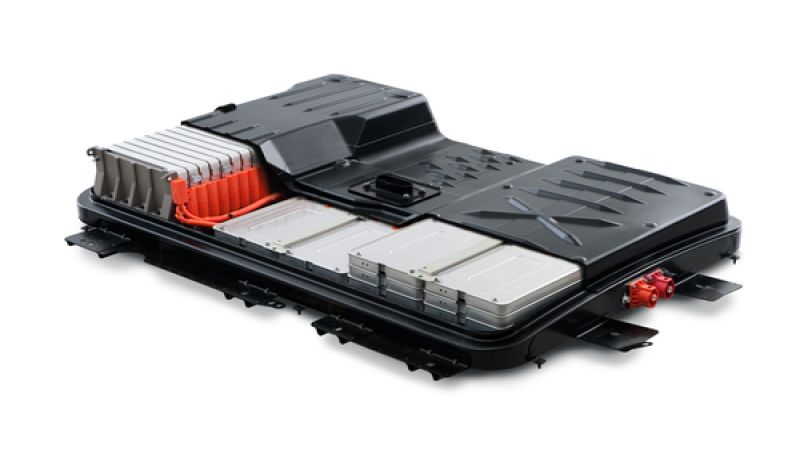Over the last several weeks some Nissan Leaf owners in Phoenix have reported significant loss of battery pack capacity. The loss of capacity was much steeper than to be expected given the intended 8-10 year lifetime of the Leaf battery packs. Between the level of discussion, and recent news coverage, Nissan's Carla Bailo, senior vice president, Research and Development, sent an open letter to Nissan Leaf owners explaining the situation, and making it clear that Nissan is taking this seriously.
Generally speaking lithium ion batteries do not do well in hot weather, and of course Phoenix and many other cities are known for extremely hot weather. The heat wave this year of course exacerbates worries over the effects of heat on the battery pack. Unlike some of the other electric cars being made, the Nissan Leaf does not have a heating or cooling system on the battery pack leaving no protection against the heat. Nissan's engineers clearly felt it was safe to not have a cooling system, while engineers for other automakers felt otherwise.
A very long discussion thread on mynissanleaf.com identified a dozen or more Leaf owners in not just Phoenix, but other cities in the hot Southwest U.S. who have significant lost battery capacity, some to the tune of 15% capacity loss after one year of ownership. Nissan has repeatedly told Leaf owners to expect 20% capacity loss over 5 years, and clearly losing 15% in one year is a significant worry. According to the summary of the discussion thread, there is no correlation with car color, air conditioned garages, or several other conditions.
A week ago Leaf owners concerns were raised in several news reports including one here on TorqueNews (see Nissan Leaf owners in hot climates experiencing battery problems). As we noted then, this news could spook prospective Leaf owners and be a crushing blow to the Leaf, whose sales were already weak this year.
Carla Bailo's open letter acknowledges the discussion on mynissanleaf.com (and elsewhere) saying "The forum's discussion around battery capacity loss has reached a point where I feel it important to personally address what is being debated, to provide Nissan's viewpoint and, most importantly, to explain the actions we are taking to work with owners."
Bailo claims "only a handful" of battery capacity loss cases exist, and that Nissan is taking the issue seriously. She goes on to explain that "Battery capacity loss of the levels reported may be considered normal depending on the method and frequency of charging." This is a claim which some in the community will be very concerned over, because Nissan's battery warranty covers abnormal capacity loss, not "normal" capacity loss. Whether the capacity loss is normal for a given car depends on, according to Bailo, "the amount of electricity consumed during daily usage and a vehicle's mileage and age." In other words, Bailo implies that a car which is heavily used could see significant battery capacity loss. Typically the lifetime of a battery pack is measured in the number of deep discharge and recharge cycles, not in the calendar age of the pack.
To know for certain Nissan will have to closely examine the customer vehicle, take diagnostic information, to better understand the real-world usage of the cars and the history of specific cars. Nissan does collect some information wirelessly already.
According to Bailo, data already collected through CARWINGS (the onboard software) shows "that less than 0.3 percent of Nissan LEAFs in the U.S. have experienced a loss of any battery capacity bars." Additionally data received globally shows battery capacity loss to affect only high-mileage Leaf's or "those in unique operating situations." The letter doesn't explain that last statement further.
In attempting to explain what can cause battery capacity loss, Bailo first says "All lithium-ion batteries lose capacity with use and age," and that generally "lithium-ion batteries exhibit a higher loss of capacity early in life, with the rate of loss decreasing over time." Factors that could negatively impact (decrease) the life of a given battery pack include "A customer's method and frequency of charging, operating environment, the amount of electricity consumed during daily usage and a vehicle's mileage and age can all affect the rate of battery capacity loss." A fair summary would be to say that if a Leaf is heavily used, driven to the limit every day, it can weaken the battery pack.
Nissan is working to learn more about the specifics of the Leaf's with significant capacity loss, and and whether or not the performance of these cars is within the range of Nissan's expectations. Nissan is committing to work closely with affected customers to discover what has happened, work to identify root causes, and determine the next steps to satisfy the customers.
The letter several times mentions Leaf owners in Arizona, but it is clear from the discussion board that Leaf owners in other states (Texas) are being affected as well.
A key item is whether Nissan considers the capacity loss in the affected cars to be "normal." Leaf owners have been concerned whether Nissan will hide behind claiming the reported capacity loss is "normal." In March, Nissan published a pair of videos on YouTube discussing battery pack warranties and optimal charging practices. Perry explained at that time that "Heat in the range of 130-140F or more is definitely not good for batteries" and describes the concern being long exposure to temperatures in the 120-140F (or hotter) range. At that time I reasoned that there are several cities, like Phoenix, which often have ambient temperatures close to 120F, and that asphalt parking lots have a habit of amplifying the temperature. I closed by asking "is this a problem?" It seems there may indeed be a problem, especially with this years historic heat wave.
This situation calls to mind the recent Nanophosphate EXT announcement from A123 Systems. This new technology is for lithium ion batteries which operate properly in a wider range of temperatures without need for heating or cooling systems. A123 claims the big advantage for Nanophosphate EXT batteries is to eliminate the need for cooling or heating systems to keep battery packs within safe operating temperatures, saving significantly on total system size and complexity. It's likely future electric cars built with this technology would not experience the battery loss capacity some Leaf's are having today.
The issue is not as simple as every Nissan Leaf in Phoenix experiences significant battery capacity loss. Instead it's clear from the forum discussion that some Leaf owners living in hot climates have had no capacity loss.
Set Torque News as Preferred Source on Google











Comments
Anyone who works on
Permalink
Anyone who works on automotive battery will tell you Nissan's design is flawed and subject to severe degradation in hot areas, my friend who works at Nissan said the same thing and they have a wait-and-see and hope for the best attitude. Only product liability lawyers like that!
Actually battery longevity is a very difficult/tricky problem. W/o liquid cooling, Nissan Leaf battery will lose >50% in 2-4 years for many people!
Even the battery degradation in chevy volt will be noticeable after 3 years, maybe degrade 30-60% after 5 years! But the design makes it harder to notice degradation in the case of Chevy volt, you will not notice unless you lose >30%.
I did PhD with Dr. John B. Goodenough (no1 scientist in the field) and I certainly know what I am talking about!
Anyone with nerve can short TSLA and make tons of money down the road, TSLA is a stock with 60% position on shorting!
Your comment, and much of the
Permalink
In reply to Anyone who works on by Battery Scient… (not verified)
Your comment, and much of the discussion of this issue, erroneously focuses on lack of external cooling. Examine the facts more closely - The leaf battery pack issues being reported are NOT being driven by *in-operation* temperature problems, they're being driven by long-term exposure to high *ambient* temperatures. A standard water cooling system as is being proposed would not help in any way - First, it can only cool to the ambient temperature anyway, and second even if it could cool to sub-ambient, it would have to run continuously while the car is parked to combat this issue.
Nice that your qualifications are so extensive, but a clear and reasonable examination of the issue could only have led to the conclusion that the lack of liquid cooling is not the core issue here.
Other electric cars have
Permalink
In reply to Your comment, and much of the by defiancecp (not verified)
Other electric cars have temperature management systems (TMS) in conjunction with highly insulated batteries. That means when they are cooled down during driving and parked without plugging in that they will stay relatively cool for a fairly long period of time. Even if not plugged in the Volt's TMS works when the battery state of charge (SOC) is above 75%. As well the TMS works when you plug your car in after work in your garage that may be in the 90s in southern states.
Without a refrigerated system
Permalink
In reply to Other electric cars have by scottf200 (not verified)
Without a refrigerated system a liquid cooling system can by nature only equalize to ambient. As a PhD you of course realize this. Therefore if ambient temp is the problem a liquid cooling system cannot possibly be a solution.
What are you talking about
Permalink
In reply to Anyone who works on by Battery Scient… (not verified)
What are you talking about son? Nonsense that's what it is.
Anyone who works on
Permalink
Anyone who works on automotive battery will tell you Nissan's design is flawed and subject to severe degradation in hot areas, my friend who works at Nissan said the same thing and they have a wait-and-see and hope for the best attitude. Only product liability lawyers like that!
Actually battery longevity is a very difficult/tricky problem. W/o liquid cooling, Nissan Leaf battery will lose >50% in 2-4 years for many people!
Even the battery degradation in chevy volt will be noticeable after 3 years, maybe degrade 30-60% after 5 years! But the design makes it harder to notice degradation in the case of Chevy volt, you will not notice unless you lose >30%.
I did PhD with Dr. John B. Goodenough (no1 scientist in the field) and I certainly know what I am talking about!
Anyone with nerve can short TSLA and make tons of money down the road, TSLA is a stock with 60% position on shorting!
Battety Scientist PHD-Tesla
Permalink
In reply to Anyone who works on by Battery Scient… (not verified)
Battety Scientist PHD-Tesla has battery and controller cooling. They are the leader in the world and even make the Toyota RAV4 and Mercedes SMART-ED electric. They are sold out for the next year or two.
Their Model S with 300+ mile range has unlimited miles warranty on the battery system for 8 years.Tesla gets REC Renewable credits for making each vehicle.
Tesla also makes battery systems for solar systems with their leading Lithium batteries.
Why would anyone short the best EV company in the world, unless they like imported OIL ?
Wow: Are you really from
Permalink
In reply to Battety Scientist PHD-Tesla by Jim stACk (not verified)
Wow:
Are you really from Tesla, you must be aware of the following:
1). Multiple people have their EV bricked early this year because they are somehow careless, but how come Tesla didn't design the car to prevent any full discharge, it is not that difficult.
2). How about the rich Saudi investor who was totally pissed his car underperformed so bad, he pulled out his investment.
Now a few things to remember:
1). You are using 18650, >6800 of them, so just wait for other people to come out with premature failure of the battery pack, because the sheer number is so huge, your product reliability and system robustness will be a joke! Waiting for more people to have their cars bricked!
2). Sooner or later, there will be news: a Tesla EV is burning like hell on highway 101 according to local media in bay area.
3). Also unlike mainstream car company, do you guys do all kinds of durability test? such as vibration, electromagnetic interference, water soaking, battery pack sealing (driving over several years will subect the battery pack to vibration and undesirable consequence to the sealing, and possible battery failure due to 1.5 ft of flood on the road.)
4). bad publicity!
I mean Tesla is a hyperbolic third class company who has no track record, no robust system engineering and ZERO reputation so far. Elon Musk is a goofyball who thinks he can defeat fundamental science, he won't, and he is going to have feces on his face soon. (I did admire his 2nd company called XSpace, the fundamental science behind XScape is much better than Tesla, despite a rocket is far more complicated in terms of engineering).
Clearly Battery Scientist is
Permalink
In reply to Wow: Are you really from by Battery Scient… (not verified)
Clearly Battery Scientist is no PHD, rather an anti Tesla troll.
Makes for fun reading; all your factually incorrect comments.
"This situation calls to mind
Permalink
"This situation calls to mind the recent Nanophosphate EXT announcement from A123 Systems. This new technology is for lithium ion batteries which operate properly in a wider range of temperatures without need for heating or cooling systems. A123 claims the big advantage for Nanophosphate EXT batteries is to eliminate the need for cooling or heating systems to keep battery packs within safe operating temperatures, saving significantly on total system size and complexity. It's likely future electric cars built with this technology would not experience the battery loss capacity some Leaf's are having today."
Other manufacturers should take notes of Nissan's woes and then replace the China made batteries with A123 batteries.
Other's with liquid (tesla +
Permalink
In reply to "This situation calls to mind by EV owner (not verified)
Other's with liquid (tesla + FORD) or air cooling (Mitsubishi) don't have any trouble. I'd like to test the A123 to see if it really can take prolonged high temps and have no loss or shortened life.
The Nissan LEAF vehicles in Seattle and other COOL areas ,even with 20-40K miles don't have any loss. Maybe they will last 10 or 20 years. Time will tell.
Jim